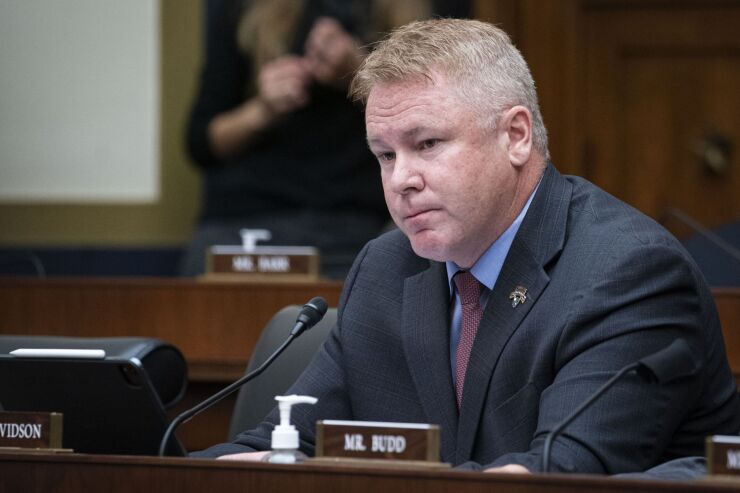The National Association of Mortgage Brokers on Wednesday backed one of the Republican proposals that would reverse
The group supported the relatively expansive Middle-Class Borrower Protection Act of 2023 from Rep. Warren Davidson, R.-Ohio, who chairs a House Financial Services subcommittee focused on housing and insurance issues.

This bill,
The Federal Housing Finance Agency's changes originally included DTI-based pricing, but after hearing concerns about fluctuations in it during origination creating challenges, the FHFA voluntarily delayed its implementation, then
Republicans have been primarily focused on pricing changes in some portions of the complex grids where borrowers with lower credit scores get small price breaks while those with better payment track records have seen modest increases.
The NAMB echoed this concern in a press release, with President Ernest Jones Jr. noting that "borrowers who have demonstrated a propensity to manage credit in a responsible manner should not be penalized when obtaining financing."
Davidson's bill also challenges whether the changes are in line with the LLPAs' role as a risk-based pricing mechanism used in line with the government-sponsored enterprises' capital framework.
That framework is currently under review for proposed revision and FHFA Director Sandra Thompson has called for
Although there's clearly a split between the parties on the need to roll back the latest pricing changes, NAMB said it believes "opposition to this policy should not be a partisan issue."
But Democrats, Thompson and some affordable housing advocates have pushed back with
Unlike the removal of layers of risk factors during the Great Recession, which contributed to widespread loan performance issues, the price tweaks the FHFA has engaged in involve combinations of looser requirements in some areas and tighter ones in others to manage risk, they argue.
Some researchers who have reviewed the price changes have said any cross-subsidization between lower- and middle-income borrowers is minimal and still leaves borrowers with lower scores with higher prices to pay than those with slightly more wealth.
However, some brokers like Jones and certain lenders have questioned whether the perception that borrowers with higher scores could get any price penalty and those with lower ones could get a break may be counterproductive when it comes to encouraging borrowers to repay.
While lower scores could reflect circumstances linked with having less income and are linked in some research, Jones said that other studies challenge the notion linking the two, noting that "there are higher income earners who fail to manage credit effectively."
However, several advocates of more racially equitable and affordable housing have called for lower price hurdles for lower-income borrowers since they tend to have lower scores and less cash for down payments.
Some would like the FHFA to go even further than it has and remove LLPAs altogether, rather than rolling any of the price changes back.
"Since FHFA instituted LLPAs in 2008, the GSEs have grossly underserved the very borrowers on whom the health of the future housing finance system depends," Nikitra Bailey, executive vice president, National Fair Housing Alliance, said in a press release opposing Davidson's bill.
"A return to the former pricing matrix would raise the cost of homeownership and make it more expensive for first-time homebuyers and borrowers of color seeking conventional loans," said Bailey. "The bill also fails to advance housing affordability and does not offer a solution."




